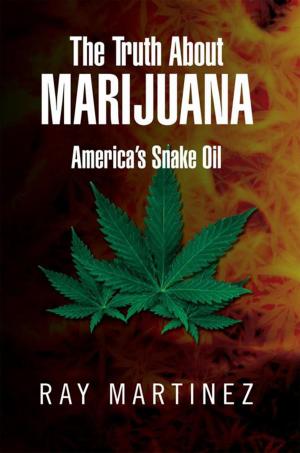Act of Retribution
The Military-Industrial-Intelligence Establishment and the Conspiracy to Assassinate President John F. Kennedy
Nonfiction, Social & Cultural Studies, Political Science, History| Author: | J.P. Phillips | ISBN: | 9781462824441 |
| Publisher: | Xlibris US | Publication: | March 17, 2010 |
| Imprint: | Xlibris US | Language: | English |
| Author: | J.P. Phillips |
| ISBN: | 9781462824441 |
| Publisher: | Xlibris US |
| Publication: | March 17, 2010 |
| Imprint: | Xlibris US |
| Language: | English |
My quest for an answer to the riddle of President Kennedys assassination first began in April 1967 following a talk given by Warren Commission critic and best-selling author, Mark Lane at Michigan State University where I was a graduate student.
My search has lasted well over twenty years. Gathering every scrap of information I could find on the assassination, I have arrived at what I believe is the most credible thesis to date. As a result of meticulous research, I am able to identify probable suspects in what I have come to believe was a far-reaching conspiracy which involved not only renegade elements from the CIA and organized crime figures, but one which extended to the highest echelons of the U. S. government.
By pulling together existing knowledge of the assassination, while introducing new evidence, my book focuses primarily on six main principals (persons of interest), their motives and their activities in relation to the assassination and the links that connect them:
- LEE HARVEY OSWALD: Accused by the Warren Commission In 1964 of being the sole assassin of President Kennedy.
- JACK RUBY: Dallas night-club owner who, two days following the Presidents assassination, shot and killed Oswald.
- CARLOS MARCELLO: Reputed crime boss of the New Orleans- Dallas Mafia during the time of the assassination.
- GENERAL CHARLES PEARE CABELL: Deputy Director of the CIA from 1953 to 1962 when he was dismissed by President Kennedy along with other high-ranking intelligence officials for the failure of the Bay of Pigs invasion.
- EARLE CABELL: Younger brother of General Charles P. Cabell who was Mayor of Dallas the day President Kennedy was assassinated.
- FRED KORTH: Fort Worth businessman and banker who was Secretary of the Navy from 1962 to October 1963 when he was forced by President Kennedy to resign for his involvement in the TFX controversy.
As to the motives of those individuals involved in the Presidents murder, I believe that the assassination was planned and carried out with a dual purpose in mind:
- as an act of vengeance by those ex-high government officials who were dismissed by the President either for alleged wrongdoing as in the case of Fred Korth, or for incompetence as in General Cabells case.
- to prevent the Presidents domestic and foreign policies- particularly in reference to his stand on the Vietnam conflict- from being implemented.
Viewed in this light, the assassination of President Kennedy was an act of retribution by a group of mean-spirited, vengeance-seeking individuals who acted in the misguided belief that by assassinating this president they were furthering the national interest.
Notwithstanding his immense popularity with the American people, President Kennedy was perceived by his killers to be a clear and present danger to the country and to its interests at home and abroad for several reasonsfor his stand on civil rights and racial equality; for his attempt to closely regulate the oil and gas industry; for his desire to normalize relations with Cuba; for his desire to ease tensions between the superpowers through a reduction in armaments; for his crackdown on organized crime; for his stated intention to withdraw U.S. forces from Vietnam. Removing him from office by political murder, therefore, excused his killers in their own eyes from any wrongdoing, for by killing this President, they were convinced that they were acting in the national interest against the seemingly dangerous policies of a chief executive who, if allowed to finish his presidency, would lead the nation to ruin. A wise mind will never censure anyone for having employed any extraordinary means for {preserving} a kingdom. Believing, like Machiavelli, that they were acting to preserve and maint
My quest for an answer to the riddle of President Kennedys assassination first began in April 1967 following a talk given by Warren Commission critic and best-selling author, Mark Lane at Michigan State University where I was a graduate student.
My search has lasted well over twenty years. Gathering every scrap of information I could find on the assassination, I have arrived at what I believe is the most credible thesis to date. As a result of meticulous research, I am able to identify probable suspects in what I have come to believe was a far-reaching conspiracy which involved not only renegade elements from the CIA and organized crime figures, but one which extended to the highest echelons of the U. S. government.
By pulling together existing knowledge of the assassination, while introducing new evidence, my book focuses primarily on six main principals (persons of interest), their motives and their activities in relation to the assassination and the links that connect them:
- LEE HARVEY OSWALD: Accused by the Warren Commission In 1964 of being the sole assassin of President Kennedy.
- JACK RUBY: Dallas night-club owner who, two days following the Presidents assassination, shot and killed Oswald.
- CARLOS MARCELLO: Reputed crime boss of the New Orleans- Dallas Mafia during the time of the assassination.
- GENERAL CHARLES PEARE CABELL: Deputy Director of the CIA from 1953 to 1962 when he was dismissed by President Kennedy along with other high-ranking intelligence officials for the failure of the Bay of Pigs invasion.
- EARLE CABELL: Younger brother of General Charles P. Cabell who was Mayor of Dallas the day President Kennedy was assassinated.
- FRED KORTH: Fort Worth businessman and banker who was Secretary of the Navy from 1962 to October 1963 when he was forced by President Kennedy to resign for his involvement in the TFX controversy.
As to the motives of those individuals involved in the Presidents murder, I believe that the assassination was planned and carried out with a dual purpose in mind:
- as an act of vengeance by those ex-high government officials who were dismissed by the President either for alleged wrongdoing as in the case of Fred Korth, or for incompetence as in General Cabells case.
- to prevent the Presidents domestic and foreign policies- particularly in reference to his stand on the Vietnam conflict- from being implemented.
Viewed in this light, the assassination of President Kennedy was an act of retribution by a group of mean-spirited, vengeance-seeking individuals who acted in the misguided belief that by assassinating this president they were furthering the national interest.
Notwithstanding his immense popularity with the American people, President Kennedy was perceived by his killers to be a clear and present danger to the country and to its interests at home and abroad for several reasonsfor his stand on civil rights and racial equality; for his attempt to closely regulate the oil and gas industry; for his desire to normalize relations with Cuba; for his desire to ease tensions between the superpowers through a reduction in armaments; for his crackdown on organized crime; for his stated intention to withdraw U.S. forces from Vietnam. Removing him from office by political murder, therefore, excused his killers in their own eyes from any wrongdoing, for by killing this President, they were convinced that they were acting in the national interest against the seemingly dangerous policies of a chief executive who, if allowed to finish his presidency, would lead the nation to ruin. A wise mind will never censure anyone for having employed any extraordinary means for {preserving} a kingdom. Believing, like Machiavelli, that they were acting to preserve and maint















